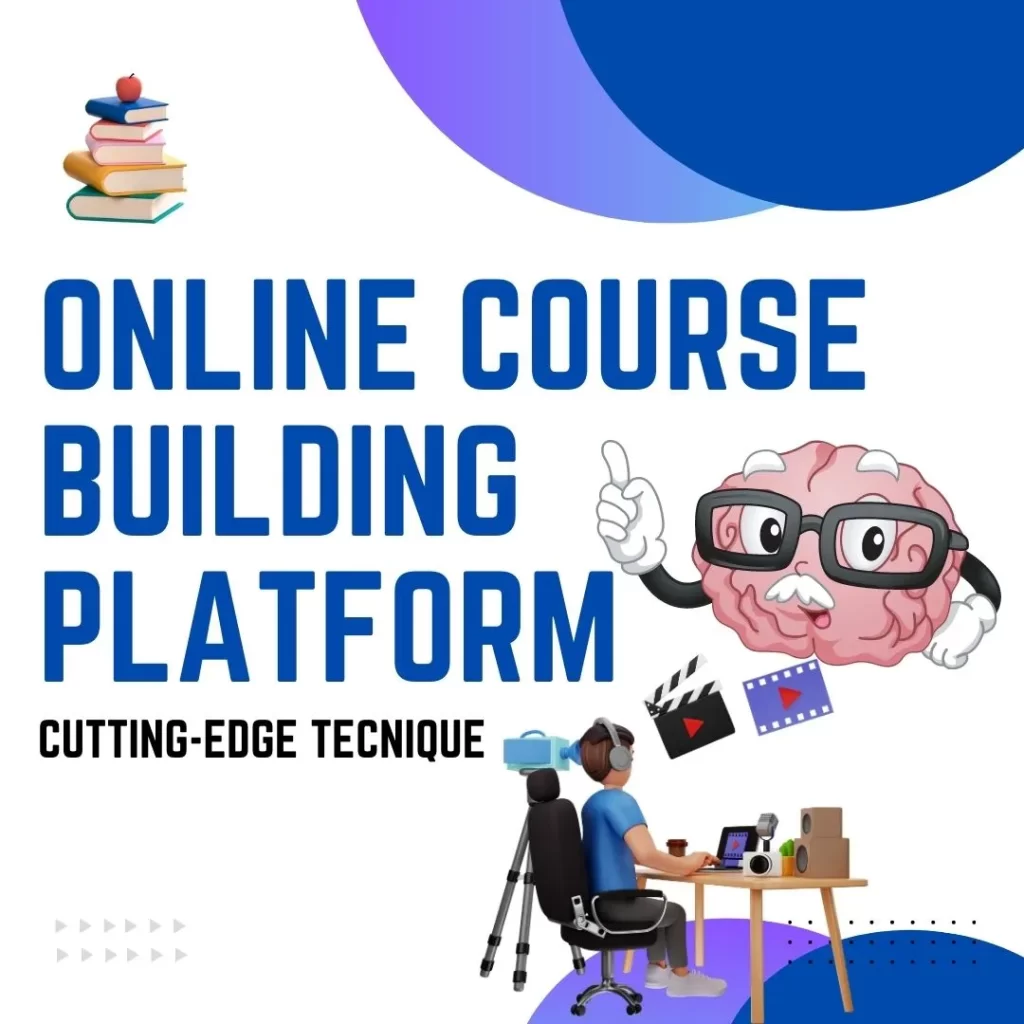
Welcome to the future of education and online course building platform! In a world increasingly driven by digital innovation, the realm of learning has also undergone a remarkable transformation. Online courses have emerged as a powerful tool for individuals and organizations alike, providing flexible and accessible learning opportunities. At the heart of this revolution lies the online course building platform—a dynamic and versatile tool that empowers educators and content creators to shape engaging and interactive learning experiences. In this article, we will explore the myriad benefits of leveraging an online course building platform, unveiling how it can revolutionize the way we teach and learn. Whether you’re an educator, a business professional, or a lifelong learner, get ready to discover the limitless possibilities and remarkable advantages offered by this technological marvel. Join us as we embark on a journey to unlock the true potential of online education.
Get the Best Online Course Building Platform and see the 3 Best Kajabi Alternatives: Cheaper competitors with free starter plan
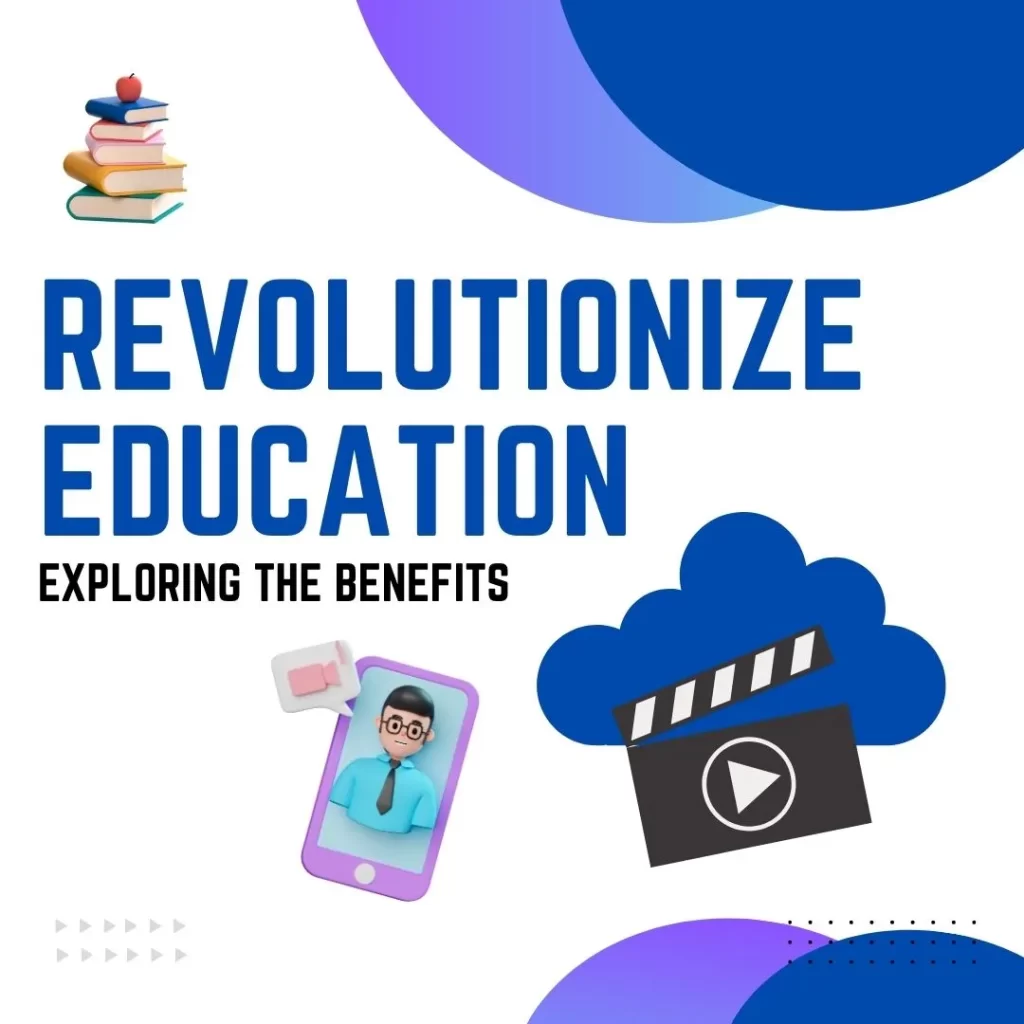
Revolutionize Education: Exploring the Benefits of an Online Course Building Platform
Education is constantly evolving, and in today’s digital age, it has experienced a significant revolution. Online learning has emerged as a powerful alternative to traditional classroom settings, offering unparalleled flexibility and accessibility. At the forefront of this transformation lies the online course building platform—a dynamic tool that empowers educators and content creators to revolutionize the way we teach and learn. In this article, we will delve into the numerous benefits of harnessing an online course building platform, uncovering its potential to reshape education as we know it.
1. Empowering Educators: Streamlining Curriculum Development
Online course building platforms provide educators with a wealth of resources and tools to streamline the development of their curriculum. With user-friendly interfaces and intuitive design features, these platforms enable educators to create engaging, interactive, and visually appealing course materials. From multimedia integration to interactive quizzes and assessments, educators can customize the learning experience to meet the unique needs of their students. By empowering educators to design and deliver high-quality content, online course building platforms foster a more engaging and effective learning environment.
2. Personalized Learning: Tailoring Education to Individual Needs
One of the greatest advantages of online course building platforms is the ability to personalize the learning experience. These platforms offer features that facilitate adaptive learning, allowing students to progress at their own pace and focus on areas where they need additional support. Through interactive modules, personalized feedback, and targeted resources, students can embark on a learning journey tailored to their individual needs and preferences. This personalized approach enhances student engagement, motivation, and ultimately, learning outcomes.
3. Accessible Education: Breaking Down Barriers
Accessibility is a crucial aspect of education, and online course building platforms excel in breaking down barriers to learning. Geographical limitations, physical disabilities, and scheduling constraints no longer hinder the pursuit of knowledge. By providing 24/7 access to course materials, online platforms enable learners to study anytime, anywhere, and at their own convenience. This accessibility promotes inclusivity, allowing individuals from diverse backgrounds and circumstances to access quality education without limitations.
4. Collaboration and Community: Fostering Engaging Learning Environments
Online course building platforms not only facilitate individual learning but also foster collaboration and community engagement. Through features such as discussion boards, real-time chat, and collaborative projects, students can interact with peers, exchange ideas, and deepen their understanding of course concepts. This sense of community and collaboration enhances the overall learning experience, promoting critical thinking, teamwork, and communication skills—vital competencies for success in the modern world.
5. Data-Driven Insights: Informing Instructional Improvements
Another notable advantage of online course building platforms is the wealth of data they generate. These platforms capture valuable information about student progress, engagement levels, and performance. Educators can leverage this data to gain insights into student learning patterns and make informed instructional decisions. By identifying areas of improvement and adapting teaching strategies accordingly, educators can optimize the learning experience and drive better outcomes.
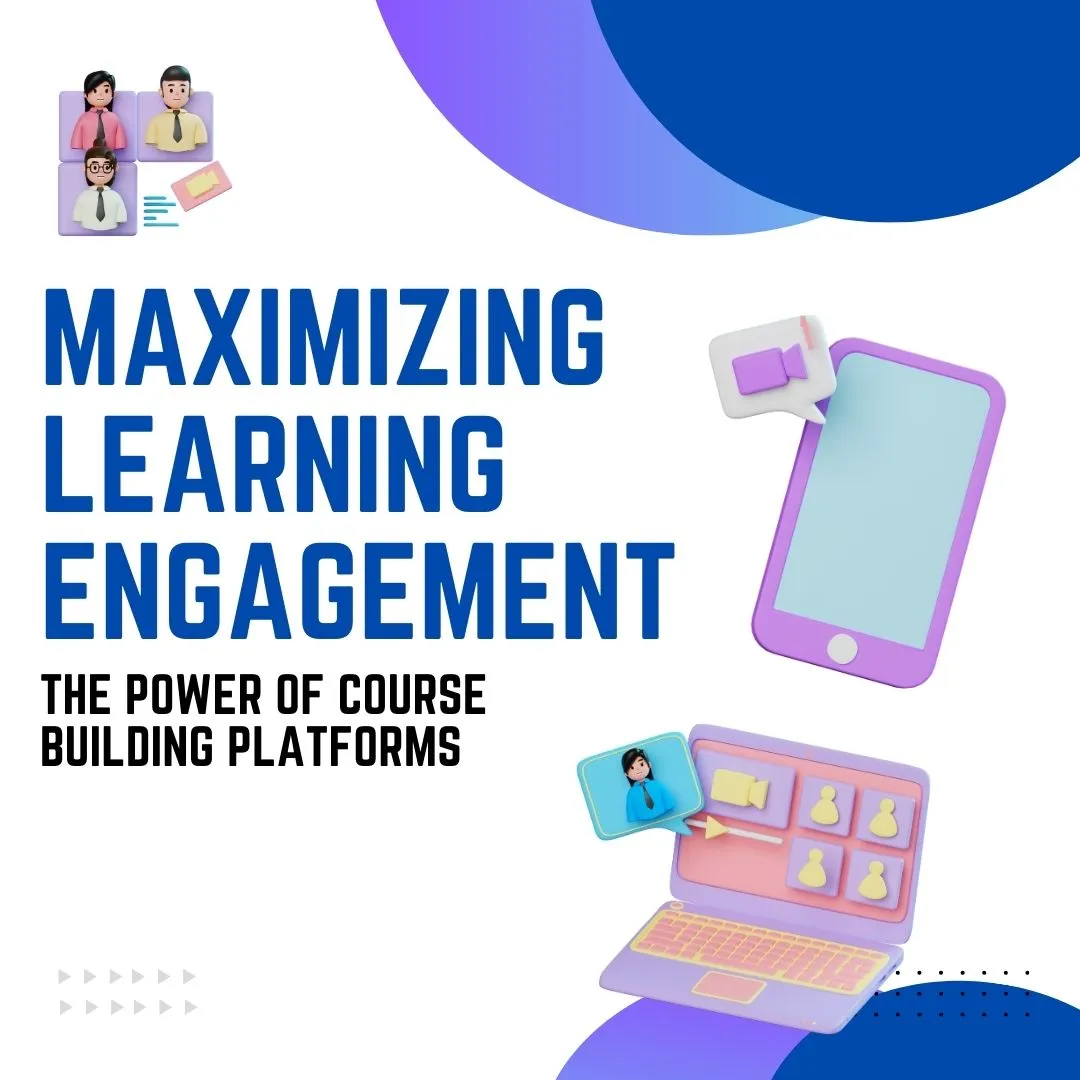
Maximizing Learning Engagement: The Power of Course Building Platforms
In the realm of education, engagement is the key to unlocking the full potential of students. When learners are actively involved and motivated, their ability to absorb and retain knowledge skyrockets. With the rapid advancements in technology, course building platforms have emerged as powerful tools to maximize learning engagement. These platforms offer a plethora of features and resources that empower educators to create immersive and interactive learning experiences. In this article, we will explore the remarkable power of course building platforms in revolutionizing learning engagement and driving student success.
1. Dynamic Multimedia Integration
Course building platforms provide educators with the ability to integrate dynamic multimedia elements seamlessly into their lessons. Gone are the days of relying solely on textbooks and lectures. Now, educators can incorporate videos, audio clips, interactive presentations, and animations to make the learning process more engaging and captivating. Visual and auditory stimulation helps capture students’ attention, fostering a deeper understanding of the subject matter. The integration of multimedia elements creates a multi-sensory learning environment that appeals to diverse learning styles and promotes active participation.
2. Gamification for Interactive Learning
One of the most effective ways to enhance learning engagement is through gamification. Course building platforms often offer built-in gamification features, such as quizzes, badges, leaderboards, and progress tracking. By introducing game-like elements, educators can transform the learning experience into an interactive and enjoyable journey. Gamification taps into students’ intrinsic motivation, as they strive to earn rewards, compete with peers, and achieve milestones. This approach promotes healthy competition, boosts motivation, and stimulates a sense of achievement, leading to increased engagement and knowledge retention.
3. Interactive Assessments and Feedback
Assessments play a crucial role in evaluating student progress and understanding. Course building platforms offer a range of interactive assessment tools, such as quizzes, polls, and surveys, that go beyond traditional multiple-choice exams. These interactive assessments enable immediate feedback, providing students with instant insights into their performance and areas that require improvement. Timely feedback fosters a sense of continuous learning and encourages students to actively participate in the learning process. The interactive nature of assessments transforms the experience from a mere evaluation to a valuable learning opportunity.
4. Collaborative Learning Experiences
Course building platforms facilitate collaborative learning experiences by enabling real-time communication and group projects. Discussion boards, chat features, and collaborative document editing tools create virtual spaces for students to exchange ideas, collaborate on assignments, and engage in meaningful discussions. Collaborative learning cultivates a sense of community and encourages students to actively contribute to their peers’ learning. By working together, students gain a deeper understanding of the subject matter, enhance their communication skills, and develop a collaborative mindset essential for success in the modern workforce.
5. Adaptive Learning Paths
Every student has a unique learning pace and style. Course building platforms often employ adaptive learning algorithms that tailor the educational journey to individual needs. These platforms analyze students’ performance and provide personalized recommendations, resources, and additional support based on their strengths and weaknesses. Adaptive learning paths ensure that students remain challenged yet supported, enhancing their learning engagement and preventing boredom or frustration. By catering to individual needs, course building platforms empower learners to take ownership of their education and progress at their own pace.
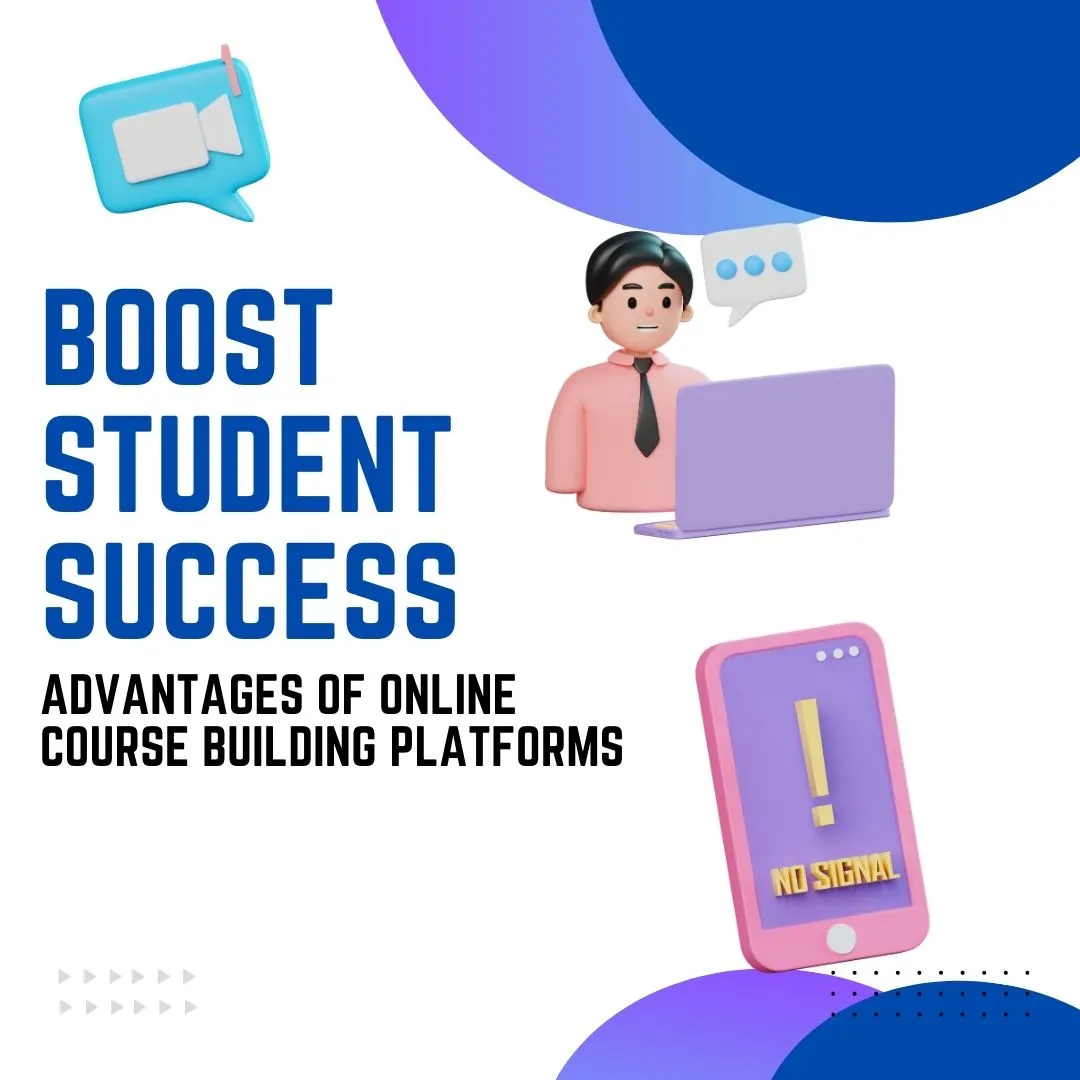
Boost Student Success: Advantages of Online Course Building Platforms
The landscape of education is constantly evolving, and with the advent of technology, new opportunities for enhancing student success have emerged. Online course building platforms have emerged as game-changers in the field of education, offering a range of advantages that can significantly boost student achievement. These platforms provide educators with powerful tools to design, deliver, and manage courses in a digital environment. In this article, we will explore the key advantages of online course building platforms and how they contribute to the success of students.
1. Enhanced Accessibility and Flexibility
One of the primary advantages of online course building platforms is the enhanced accessibility and flexibility they provide. Students are no longer bound by the constraints of physical classrooms and rigid schedules. With online courses, learners can access course materials and participate in learning activities anytime and anywhere. This flexibility allows students to learn at their own pace, accommodating their individual learning styles and preferences. Whether it’s juggling work commitments, personal responsibilities, or geographical limitations, online course building platforms break down barriers and empower students to access education on their terms.
2. Personalized Learning Experiences
Each student has unique strengths, weaknesses, and learning styles. Online course building platforms offer the advantage of personalized learning experiences tailored to individual needs. Educators can design courses that adapt to the specific requirements of each student, providing targeted resources, assessments, and feedback. Adaptive learning algorithms integrated into these platforms analyze student performance data and provide personalized recommendations for improvement. By catering to individual learning needs, online course building platforms optimize the learning journey, resulting in improved comprehension, engagement, and overall student success.
3. Interactive and Engaging Content
Engagement is key to effective learning, and online course building platforms excel in delivering interactive and engaging content. These platforms offer a wide range of multimedia tools, such as videos, interactive presentations, simulations, and gamified elements. By incorporating such interactive content, educators can captivate students’ attention, stimulate critical thinking, and deepen their understanding of the subject matter. Engaging visuals, real-life examples, and interactive exercises promote active participation and facilitate knowledge retention. The dynamic and interactive nature of online course building platforms keeps students motivated, making the learning experience enjoyable and fruitful.
4. Collaborative Learning and Communication
Collaboration is an essential skill in today’s interconnected world, and online course building platforms foster collaborative learning environments. These platforms facilitate communication and interaction among students through discussion boards, group projects, and real-time messaging. Students can engage in meaningful discussions, exchange ideas, and collaborate on assignments, enhancing their understanding through peer-to-peer learning. Collaborative activities not only deepen comprehension but also cultivate teamwork, communication skills, and social connections. By fostering a sense of community and collaboration, online course building platforms contribute to student success beyond academic achievements.
5. Continuous Assessment and Feedback
Online course building platforms offer continuous assessment and timely feedback, which are integral to student success. These platforms provide various assessment methods, including quizzes, assignments, and online exams, that allow educators to monitor student progress regularly. Immediate feedback helps students identify areas of improvement and gain a better understanding of their strengths and weaknesses. Through the timely feedback provided by online course building platforms, students can make adjustments, clarify doubts, and track their progress, ultimately leading to enhanced learning outcomes and increased success.
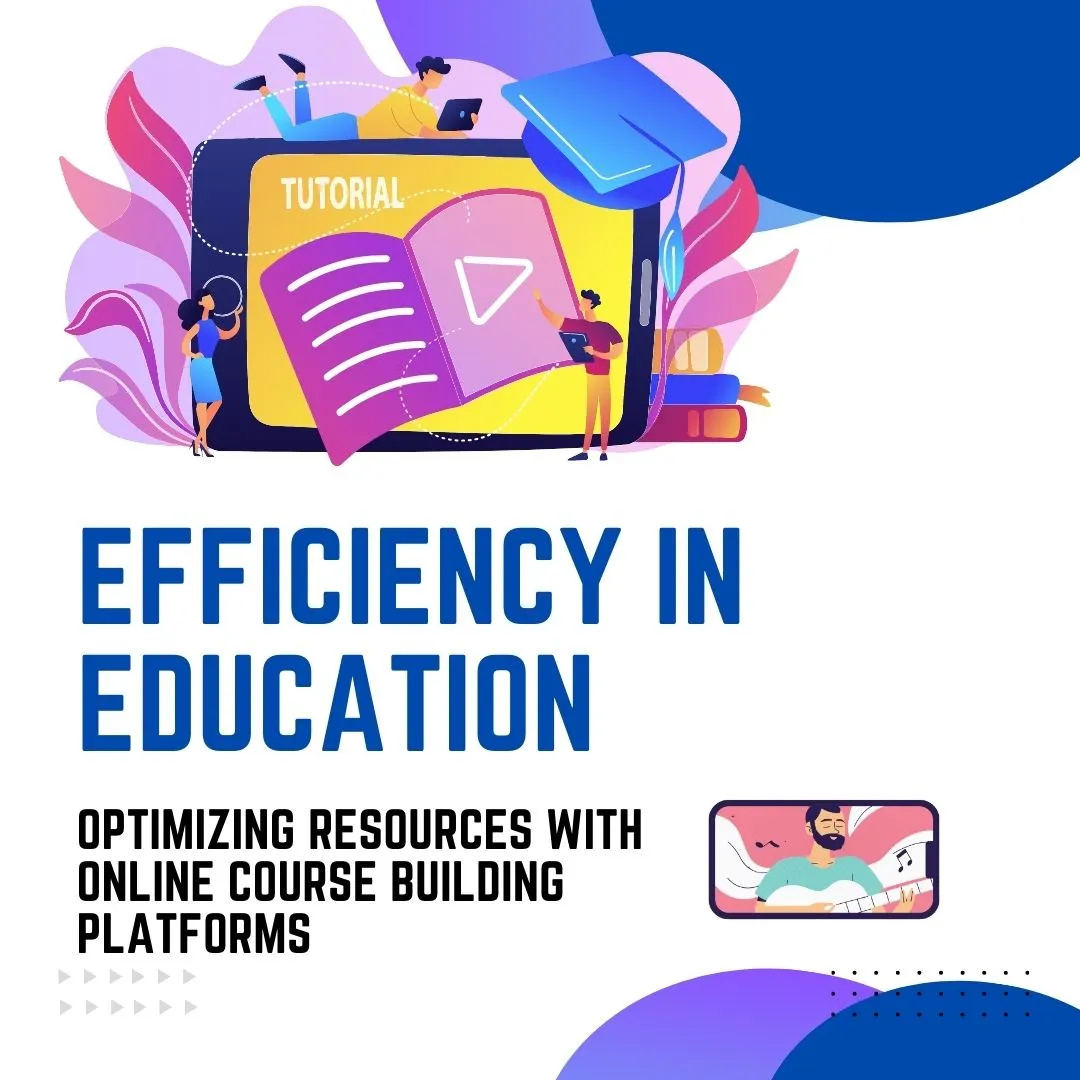
Efficiency in Education: Optimizing Resources with Online Course Building Platforms
In the rapidly evolving landscape of education, the efficient utilization of resources is a paramount concern. Educators strive to provide high-quality instruction, engaging learning experiences, and personalized support to students, all while managing limited time, budgets, and physical resources. Enter online course building platforms, the technological marvels that offer a solution to this challenge. These platforms optimize resources, streamline processes, and maximize efficiency in education. In this article, we will explore how online course building platforms contribute to the efficient utilization of resources, ultimately enhancing the educational experience for all stakeholders.
1. Streamlined Content Creation and Delivery
Online course building platforms provide educators with user-friendly tools and templates that streamline content creation and delivery processes. These platforms offer intuitive interfaces, drag-and-drop functionality, and pre-designed layouts, allowing educators to quickly develop high-quality course materials. By eliminating the need for extensive technical skills or coding expertise, online course building platforms empower educators to focus on instructional design and content creation. This streamlined approach saves time and effort, enabling educators to efficiently produce and deliver engaging learning materials to students.
2. Time and Space Flexibility
Traditional classroom-based education often requires strict adherence to fixed schedules and physical constraints. Online course building platforms break free from these limitations, offering time and space flexibility to both educators and students. Educators can pre-record lectures, design self-paced modules, and create asynchronous learning opportunities. This flexibility allows students to access course materials and participate in learning activities at their own convenience. By leveraging online course building platforms, educators can optimize their time, and students can learn according to their preferred schedule, resulting in more efficient use of resources.
3. Scalability and Reach
Online course building platforms enable educators to scale their courses and reach a larger audience without significant resource investments. With traditional classroom-based teaching, the number of students that can be accommodated is often limited by physical space and logistical constraints. However, online courses hosted on course building platforms can reach a virtually unlimited number of students worldwide. This scalability eliminates the need for additional physical infrastructure, such as larger classrooms or additional teaching staff. Educators can efficiently share their knowledge and expertise with a broader audience, maximizing the impact of their resources.
4. Resource Sharing and Collaboration
Online course building platforms facilitate resource sharing and collaboration among educators. These platforms often have built-in repositories where educators can share course materials, lesson plans, and teaching resources. Educators can leverage this wealth of shared resources to enhance their own course materials, saving time and effort in creating everything from scratch. Additionally, online platforms foster collaboration among educators, enabling them to exchange ideas, discuss best practices, and co-create learning materials. By leveraging the collective knowledge and experience of a broader community, educators can optimize resources and improve the quality of education.
5. Data-Driven Decision Making
Online course building platforms generate valuable data and analytics on student engagement, performance, and progress. Educators can access insights and reports that provide a comprehensive view of student learning patterns and outcomes. This data-driven approach helps educators make informed decisions regarding instructional strategies, resource allocation, and student support. By analyzing the data provided by online course building platforms, educators can identify areas for improvement, tailor interventions, and optimize the allocation of resources, ultimately leading to more efficient and effective educational practices.
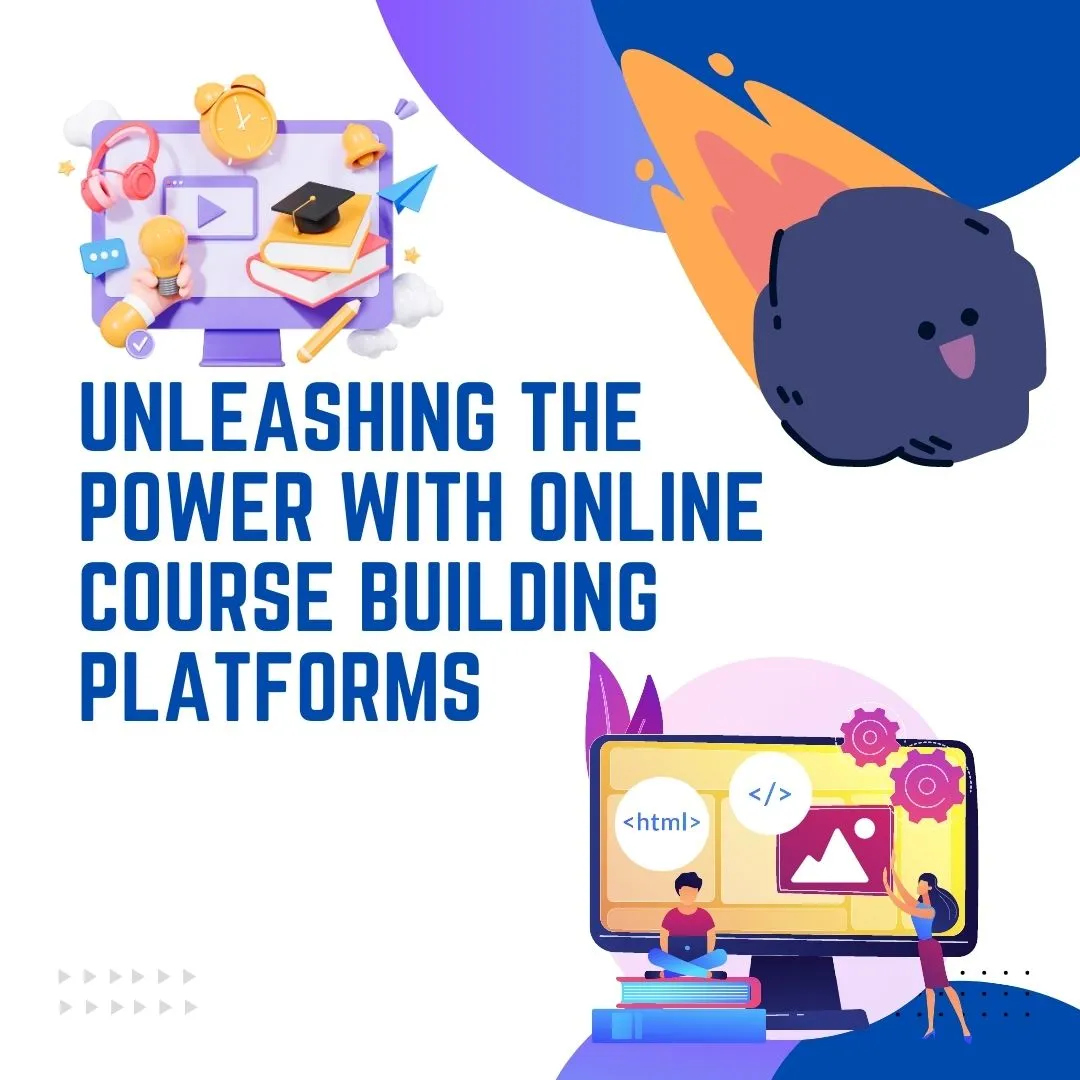
Unleashing the Power with Online Course Building Platforms
In the quest for efficiency in education, online course building platforms have emerged as true game-changers. These powerful tools unleash a world of possibilities, transforming the way educators utilize resources and enhancing the learning experience for all. In this article, we will dive into the immense power of online course building platforms and explore how they revolutionize education efficiency.
1. Streamlined Creation and Delivery of Content
Online course building platforms offer educators a streamlined approach to creating and delivering content. With user-friendly interfaces, pre-designed templates, and intuitive tools, educators can quickly develop engaging materials without the need for extensive technical skills. This streamlined process saves time and effort, enabling educators to focus on designing captivating content that resonates with students. By simplifying content creation and delivery, online course building platforms optimize efficiency from the very beginning.
2. Flexibility for Personalized Learning
Online course building platforms provide the flexibility needed to support personalized learning journeys. Educators can tailor courses to meet the unique needs and preferences of individual students. Whether it’s self-paced modules, interactive quizzes, or multimedia resources, these platforms empower students to learn at their own pace and in their preferred style. This personalized approach enhances engagement, understanding, and overall learning outcomes. By unlocking the power of personalization, online course building platforms maximize efficiency in education.
3. Expanding Reach and Accessibility
Online course building platforms break down geographical barriers and enable educators to reach a wider audience. With traditional classrooms, there are limitations on the number of students that can be accommodated due to physical space constraints. However, online courses hosted on these platforms can scale infinitely, allowing educators to impact countless learners around the world. This expanded reach enhances the efficiency of educational resources by maximizing their impact and accessibility.
4. Collaboration and Resource Sharing
Online course building platforms foster collaboration among educators, creating a vibrant community of knowledge sharing. These platforms often include features for resource sharing, where educators can exchange course materials, lesson plans, and teaching strategies. By tapping into this collective wisdom, educators can save time and effort by leveraging the expertise of others. The collaborative nature of these platforms fosters innovation, improves the quality of education, and optimizes resource utilization.
5. Data-Driven Insights for Continuous Improvement
Harnessing the power of data, online course building platforms provide educators with valuable insights into student performance, engagement, and progress. By analyzing this data, educators gain a deeper understanding of individual learning needs and can make data-driven decisions to optimize instructional strategies. These platforms enable educators to identify areas of improvement, tailor interventions, and allocate resources effectively. The result is a continuous improvement cycle that maximizes efficiency and enhances student success.
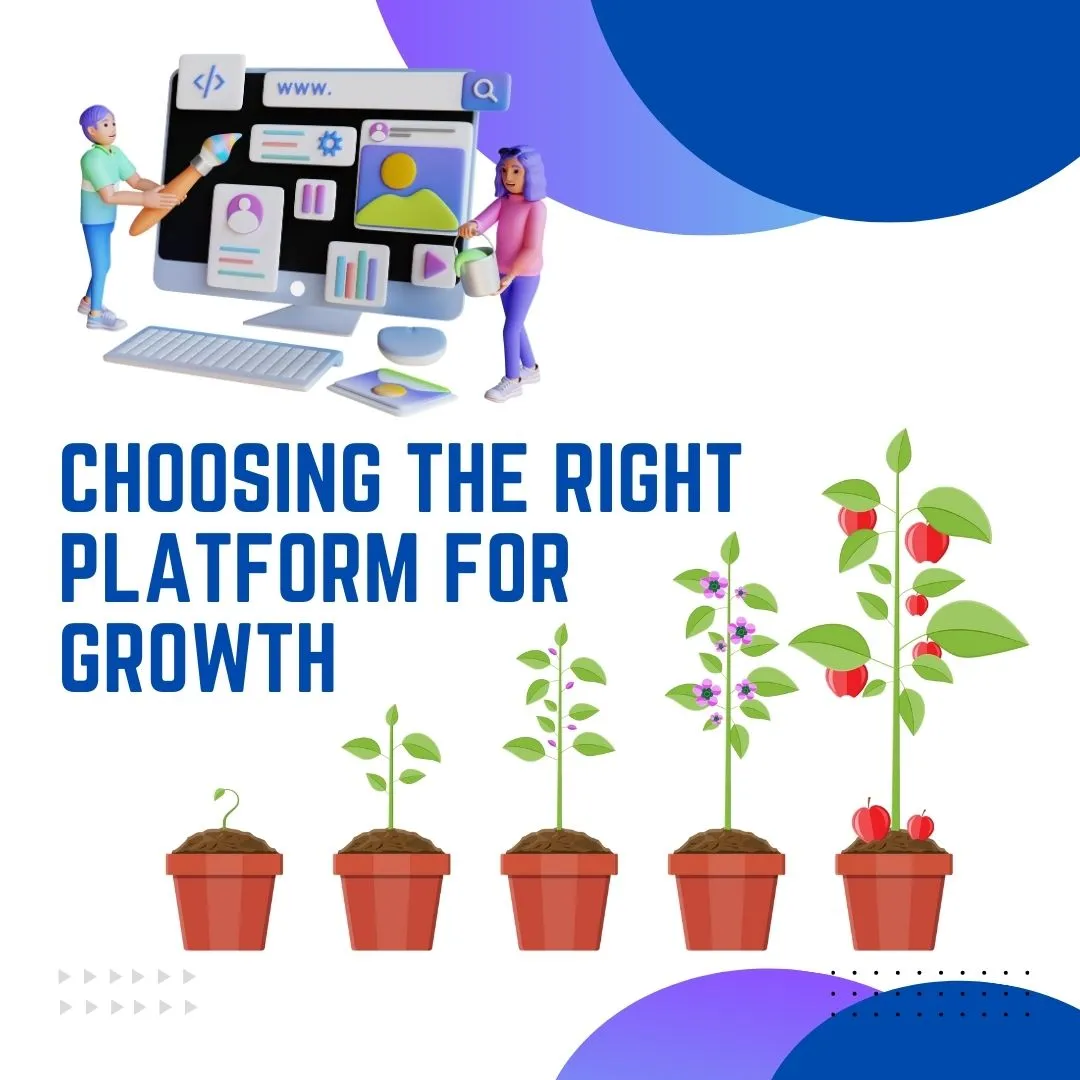
Building the Best Online Course: Choosing the Right Platform for Growth
In today’s digital era, online courses have become increasingly popular for both educators and learners. The ability to share knowledge, acquire new skills, and connect with a global audience has made online learning a valuable avenue for personal and professional growth. However, creating an effective online course requires careful consideration of the building platform. Lets explore the key factors to consider when selecting the right platform for building the best online course, ensuring sustainable growth and success.
User-Friendly Interface:
When selecting a building platform for your online course, it is crucial to prioritize a user-friendly interface. The platform should be intuitive, allowing instructors to easily create and manage course content without technical expertise. Additionally, a user-friendly interface enables learners to navigate the course materials effortlessly, enhancing their overall learning experience. Look for platforms that offer drag-and-drop functionality, customizable templates, and easy content uploading options.
Multimedia Integration:
To deliver engaging and dynamic course content, choose a platform that supports multimedia integration. A combination of videos, audio clips, infographics, and interactive elements can significantly enhance learner engagement and knowledge retention. Look for platforms that offer seamless integration with popular multimedia formats and provide tools for creating interactive quizzes and assessments.
Scalability and Customizability:
Selecting a platform that offers scalability and customizability is essential for long-term growth. As your online course gains popularity, you may need to accommodate a growing number of learners. Ensure that the chosen platform can handle increased traffic and user demand without compromising the course experience. Additionally, the ability to customize the course layout, branding, and user experience according to your specific requirements is crucial for creating a unique and immersive learning environment.
Robust Learning Management System (LMS):
A robust learning management system (LMS) is the backbone of an effective online course. Look for platforms that offer comprehensive LMS features such as student enrollment management, progress tracking, assessment tools, and discussion forums. An LMS enables instructors to monitor learner performance, provide timely feedback, and foster an interactive learning community. Consider platforms that also integrate with third-party tools for enhanced functionality, such as analytics, certifications, and marketing automation. Best LMS platforms .
Mobile Compatibility:
In an increasingly mobile world, it is essential to choose a platform that supports mobile compatibility. With the majority of learners accessing courses through smartphones and tablets, a responsive design that adapts to various screen sizes is crucial. Mobile compatibility ensures that learners can access course content anytime, anywhere, enhancing their learning flexibility and convenience.
Community and Support:
Building an online course can be a complex endeavor, and having a supportive community and reliable technical support is invaluable. Look for platforms that offer active user communities, where instructors can connect with peers, share insights, and seek advice. Additionally, ensure that the platform provides prompt and responsive customer support, assisting with technical issues and troubleshooting.
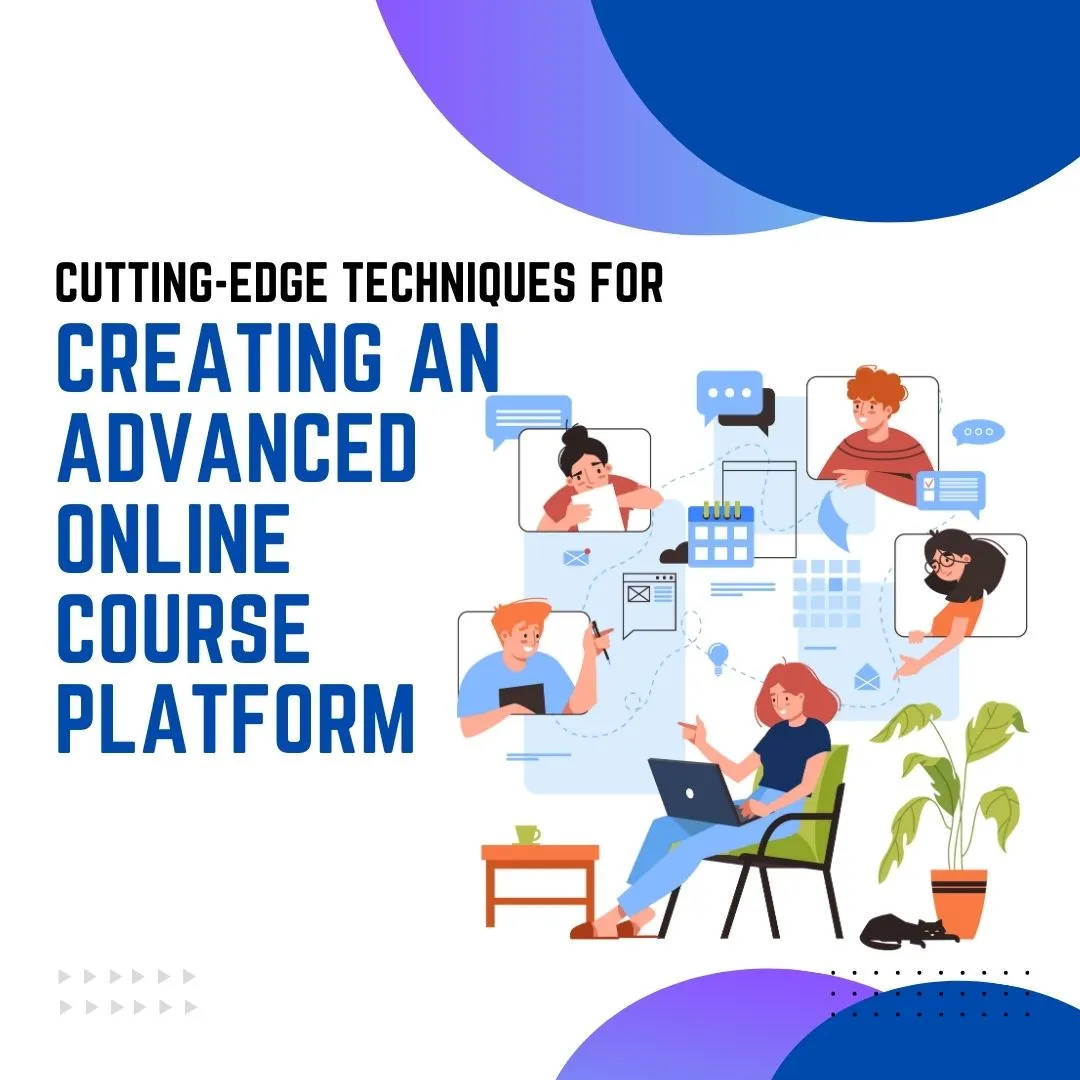
Cutting-Edge Techniques for Creating an Advanced Online Course Platform
Creating an advanced online course platform involves combining innovative features, intuitive design, and powerful functionality to deliver an exceptional learning experience. In this article, we will explore some of the latest techniques you can employ to build a state-of-the-art online course platform that captivates learners and fosters knowledge acquisition.
Artificial Intelligence (AI) Integration:
Integrating artificial intelligence into your online course platform can revolutionize the learning experience. AI-powered features such as intelligent chatbots, automated grading systems, and personalized recommendations based on learner behavior can enhance engagement and streamline the learning process. These intelligent systems can provide instant feedback, adaptive learning paths, and individualized support, ensuring learners receive a tailored educational experience.
Gamification Elements:
Gamification techniques have proven to be highly effective in engaging learners and motivating their progress. By incorporating game-like elements such as points, badges, leaderboards, and virtual rewards, you can infuse excitement and competition into the learning process. Gamification not only makes the course more enjoyable but also enhances learner retention and motivation, encouraging them to complete modules and achieve their learning goals.
Virtual Reality (VR) and Augmented Reality (AR):
Harnessing the power of virtual reality and augmented reality can take the learning experience to a whole new level. VR and AR technologies enable learners to immerse themselves in realistic virtual environments, simulating real-world scenarios. For example, in medical education, VR can recreate surgical procedures, allowing learners to practice in a risk-free environment. AR can overlay digital information onto the physical world, providing interactive and engaging learning experiences. Integrating these technologies can enhance learner understanding, retention, and practical skills development.
Social Learning and Collaboration Tools:
Building a sense of community and facilitating collaboration among learners is crucial for an effective online course platform. Incorporate social learning features such as discussion forums, peer review systems, and group projects to encourage interaction and knowledge sharing. Collaborative tools like shared document editing, real-time chat, and video conferencing can foster teamwork and provide opportunities for learners to engage with instructors and peers, creating a rich and interactive learning environment.
Data Analytics and Personalized Insights:
Utilizing data analytics and machine learning algorithms can provide valuable insights into learner behavior, performance, and preferences. By tracking user interactions, completion rates, and assessment results, you can generate personalized recommendations, adaptive learning paths, and targeted interventions. These insights allow instructors to tailor the learning experience, identify areas for improvement, and provide individualized support to learners, optimizing their overall learning outcomes.
Mobile-First Design:
With the rise of mobile devices, adopting a mobile-first design approach is crucial for an advanced online course platform. Ensure that your platform is fully responsive, offering seamless navigation and functionality across various screen sizes and operating systems. A mobile-friendly design allows learners to access course materials on the go, promoting flexibility and accessibility.
Conclusion:
Creating an advanced online course platform requires incorporating cutting-edge techniques that leverage the latest technologies and pedagogical strategies. By integrating artificial intelligence, gamification elements, virtual and augmented reality, social learning tools, data analytics, and adopting a mobile-first design, you can provide learners with an immersive, personalized, and interactive learning experience. Embracing these innovations will enable you to stay at the forefront of online education, fostering engagement, and facilitating knowledge acquisition in the digital age.
